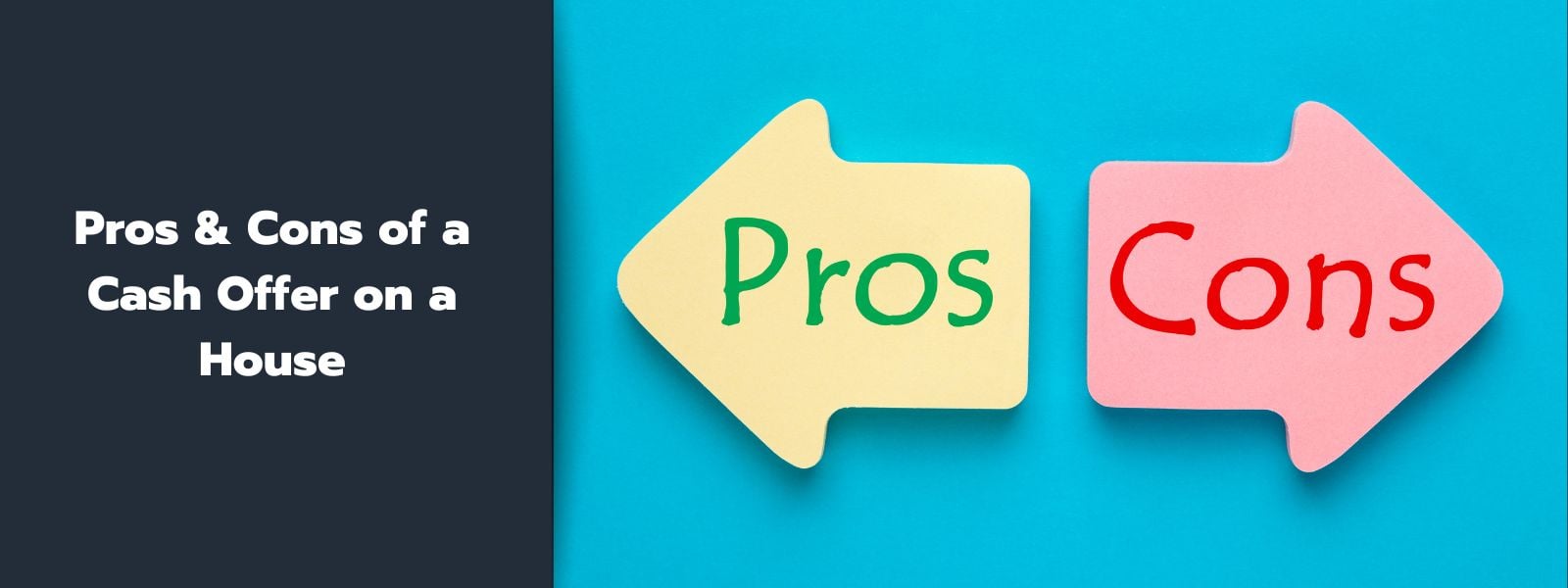In a competitive seller’s market, choosing to make a cash offer instead of using traditional financing can give you an advantage over other potential buyers.
Home sales dropped significantly in 2023 because of high mortgage rates, low inventory, and increasing prices.
Despite this, the demand for cash offers has remained.
Many buyers with sufficient savings or the ability to use their existing home equity opted for cash offers to avoid paying more in interest.
According to a report by ATTOM, a real estate data company, in the third quarter of 2023, cash deals made up about 37% of single-family home and condo sales.
In 2024, the Federal Reserve is expected to reduce interest rates three times.
According to the National Association of Realtors (NAR), this move could increase existing home sales and make homes more affordable.
However, due to the nationwide shortage of available homes, the seller’s market is likely to continue, making the cash offer a strong negotiating tool.
In this blog post, we’ll delve into the world of cash offers.
We’ll be exploring their prevalence in the market, impact on the home-buying process, and the pros and cons associated with this approach.
Whether you’re a prospective buyer eager to gain a competitive edge or a seller looking for a seamless transaction, understanding the ins and outs of cash offers is essential for navigating the dynamic landscape of real estate transactions.
Let’s dive in and uncover the key considerations when it comes to cash offers in real estate.

What is a Cash Offer on a House?
A cash offer on a house is exactly what it sounds like: a buyer offers to purchase a property using cash rather than obtaining financing through a mortgage lender. This means that instead of relying on a bank or other financial institution to fund the purchase, the buyer uses their own available funds to complete the transaction.
Cash offers are typically more appealing to sellers because they eliminate the uncertainty and potential complications associated with mortgage financing. From the seller’s perspective, where the money comes from doesn’t matter, whether from a loan or a bank account. The end result is the same.
The opportunity to avoid the contingencies and obstacles faced by buyers and sellers during conventional home sales is quite appealing.
How Common are Cash Offers?
Cash offers may seem like a rarity in the realm of real estate, but they are more common than you might think. According to data from ATTOM, cash transactions accounted for 38% of all home sales in 2023.
While this percentage may vary depending on market conditions and location, cash offers are consistently favored in competitive markets where bidding wars are common.
Cash offers are more common in these situations:
- An investor (or investment company) wants the property.
- The buyer has recently sold their home and has money from the sale.
- The seller has talked to an iBuyer about buying their house.
- When there is a lot of competition, a buyer may choose to offer cash.
- The property needs repairs or renovations, making it attractive for a fix-and-flip project.
However, cash offers can happen in any transaction, not just the ones listed above. If you’re thinking about buying or selling a house soon, it’s important to understand these offers and how they function.

How Does a Cash Offer Affect the Home Buying Process?
Opting for a cash offer can significantly streamline the home buying process, offering several advantages over traditional mortgage financing. One of the most notable benefits is the speed at which transactions can be completed.
Without the need for mortgage approval, documentation, or underwriting, cash offers can lead to faster closings. This allows buyers to secure their dream home without the delays often associated with mortgage financing.
Cash Offer vs. Mortgages
When comparing cash offers to mortgage financing, it’s essential to understand the key differences between the two approaches. While both methods ultimately result in the purchase of a home, they vary significantly in terms of process, requirements, and implications for both buyers and sellers.
One of the primary distinctions is the level of risk involved for sellers. Cash offers provide a higher level of certainty for sellers, as they eliminate the possibility of financing falling through due to issues such as low appraisal values or loan denial.
As a buyer, you still need to handle the title policy and insurance, provide proof of funds, and sign closing documents. According to Redfin, you might be able to close an all-cash offer in just two weeks. In comparison, the average conventional mortgage loan takes 47 days to close.
Here are some ways cash offers differ from mortgages:
- Contingencies: Cash sales usually have fewer contingencies. Buyers don’t require a financing contingency (which is for mortgage loans), and there might be no need for a sale contingency either. Some buyers may still opt for an inspection contingency.
- Appraisal: Lenders usually mandate appraisals. Without a lender, buyers often don’t need to worry about them. However, some buyers, especially investors seeking guaranteed returns, may still want an appraisal in certain situations.
- Closing: The closing process for a cash offer is simpler. As a buyer, you’ll sign the settlement statement, title, and deed, provide a cashier’s check (or wire the money), and get your keys. With no financing involved, the paperwork is significantly reduced. Additionally, your closing costs are lower since there are no lender fees.
- Title & Escrow: Buyers still need a title and escrow company to manage the transaction. However, without a lender, you may have more freedom in selecting these parties. Comparing fees by shopping around can help you make a better choice.

Pros & Cons of a Cash Offer of a House
A cash offer benefits both buyers and sellers during real estate transactions. Buying or selling a home is stressful for both parties. Cash offers can help to alleviate the stress on both sides of the transaction. Whether you’re planning to list your home or begin looking for a new one, keep your mind open to a straightforward cash sale.
PROS: Cash Offer Advantages
Below you’ll find the advantages of cash offers in real estate transactions. These Pros are generally neutral, but also provide some context into the relevance of a particular Pro to either a buyer or seller.
Cash Buyers Are More Attractive to Sellers:
In today’s competitive real estate market, cash buyers hold a distinct advantage over those relying on the mortgage loan process. Sellers are often drawn to cash offers because they provide a level of certainty and reliability that mortgage-backed offers may lack.
According to a study by Redfin, cash offers ranked as the most effective strategy for winning bidding wars. So much so, that it improves an offer’s chances of success by 97%. In luxury markets, it increases a buyer’s likelihood of success by more than 400%!
Faster & Simpler Closing Process:
One of the most significant advantages of cash offers is the expedited closing process they facilitate. Without the need for lender approval, mortgage underwriting, or appraisal contingencies, cash transactions can be completed in a matter of days rather than weeks or months.
This streamlined process benefits buyers by allowing them to move into their new home sooner. It also provides peace of mind for sellers who are eager to close the deal quickly.
Lower Closing Costs:
Another compelling reason to consider a cash offer is the potential for lower closing costs. With no mortgage lender involved, buyers can avoid various fees typically associated with mortgage financing.
These include origination fees, application fees, closing costs, title insurance, and mortgage insurance premiums. Additionally, cash buyers can negotiate lower closing costs with the seller, further reducing their overall expenses.
No Mortgage Payments or Other Fees:
Perhaps the most significant advantage of a cash offer is the absence of mortgage payments and related expenses. By purchasing a home outright with cash, buyers eliminate the need for monthly mortgage payments. This saves thousands of dollars in interest over the life of the loan.
Additionally, cash buyers are not subject to ongoing fees such as private mortgage insurance (PMI) or loan servicing fees. This allows them to enjoy greater financial flexibility and security.
CONS: Cash Offer Disadvantages
Below you’ll find the disadvantages of cash offers in real estate transactions. These Cons are generally neutral, but also provide some context into the relevance of a particular Con to either a buyer or seller.
Cash Buyers Miss Out on Mortgage Tax Deductions:
One potential downside of opting for a cash offer is the missed opportunity to take advantage of mortgage tax deductions. Homeowners who finance their purchase with a mortgage may be eligible to deduct mortgage interest and property taxes from their taxable income, potentially resulting in significant tax savings. However, cash buyers do not have the opportunity to benefit from these deductions, which could impact their overall tax liability.
Additional Expenses May Apply:
Cash offers can result in lower closing costs overall. However, buyers should be prepared for potential additional expenses associated with purchasing a home outright.
These expenses may include property taxes, homeowners insurance, and maintenance costs, which can add up over time. Additionally, buyers who liquidate investments or assets to fund their cash purchase may incur capital gains taxes or other financial implications.
Your Money is Tied Up in the House:
Another consideration to keep in mind when making a cash offer is that your funds will be tied up in the property. This can potentially limiting your liquidity and financial flexibility.
Unlike buyers who finance their purchase with a mortgage, cash buyers may not have as much cash on hand for other investments or financial goals. It’s essential to carefully weigh the opportunity cost of tying up your capital in real estate versus other investment opportunities that may offer higher returns or greater diversification.

Cash Offer Considerations When Purchasing a House
Wondering if you should make a cash offer for a house? Just having the money doesn’t automatically mean it’s the best choice. We covered the pros and cons of cash offers above, but from a neutral perspective.
While there can be benefits to an all-cash offer, there are also drawbacks. If you’re the one making the cash offer, it changes the perspective a bit.
Here are some advantages and disadvantages to think about before you decide:
Advantages of a cash offer:
- Boosts seller confidence
- Speeds up the closing timeline
- Your credit score isn’t a factor
- No need for a home appraisal
- Saves money over time (no interest payments)
- Reduces paperwork and required documentation
Disadvantages of a cash offer:
- Requires a significant amount of money
- Limits your liquidity and ties up your wealth in a single, less liquid asset
- You lose out on mortgage-related tax deductions
Also, consider the market’s competitiveness and the specific house you’re interested in. In a hot market with many other buyers, a cash offer could help you stand out.
Remember, don’t assume your cash offer covers all expenses. Besides the seller’s payment, you’ll need funds for property taxes, homeowners insurance, HOA dues, earnest money, moving costs, and more. Ensure you can afford everything without draining your savings (keep a cushion for unexpected repairs and maintenance).

Cash Offer Considerations When Selling a Home
If you are selling your home, you’ll likely to receive a cash offer or two. This is especially true in affluent markets or areas attractive to investors.
Buyers offering cash usually fall into these categories:
- Investors aiming to renovate fixer-upper homes to sell or hold them as rentals
- Retirees using their savings to avoid mortgage expenses
- Previous homeowners using sale proceeds to buy a new property
- Wealthy buyers capable of making substantial cash payments
- iBuying companies purchasing your home directly
Regardless of the cash offer source, carefully evaluate the advantages and disadvantages before accepting. While there are benefits to an all-cash deal, it may not be suitable for everyone.
Consider the following pros and cons:
Pros of accepting a cash offer:
- No risk of buyer financing issues
- Faster closing process
- Typically, no need for an appraisal
- Potential to avoid certain contingencies
Cons of accepting a cash offer:
- Offer might be lower than other bids
- Buyer scrutiny may not be as rigorous
If you decide to sell to a cash buyer, make sure to understand the pros and cons to ensure the best choice for your circumstances.

Wrapping Up Our Guide to Cash Offers & How They Work
Cash offers represent a compelling strategy for buyers looking to streamline the home-buying process.
Making a cash offer, you gain a competitive edge in a crowded market and enjoy greater financial flexibility and security.
By offering the certainty and speed that sellers desire, cash transactions are very appealing.
They typically lead to faster closings, lower closing costs, and a smoother overall experience for all parties involved.
However, it’s essential to weigh the pros and cons carefully and consider your individual financial situation and goals before deciding whether a cash offer is the right choice for you.
Ultimately, with careful planning and consideration, a cash offer can be a powerful tool for achieving your homeownership dreams.
To learn more about cash offers or if you have questions, give us a call at (817) 923-7321 or contact us.
Helen Painter Group Realtors is here to offer our knowledge and expertise to help facilitate your home-buying journey.
A long-standing and trusted Fort Worth real estate agency, we’ve been serving buyers and sellers since 1958.
That’s more than six decades of experience and success behind us.
You’ll surely have peace of mind knowing your best interests are being represented throughout the home-selling process.

